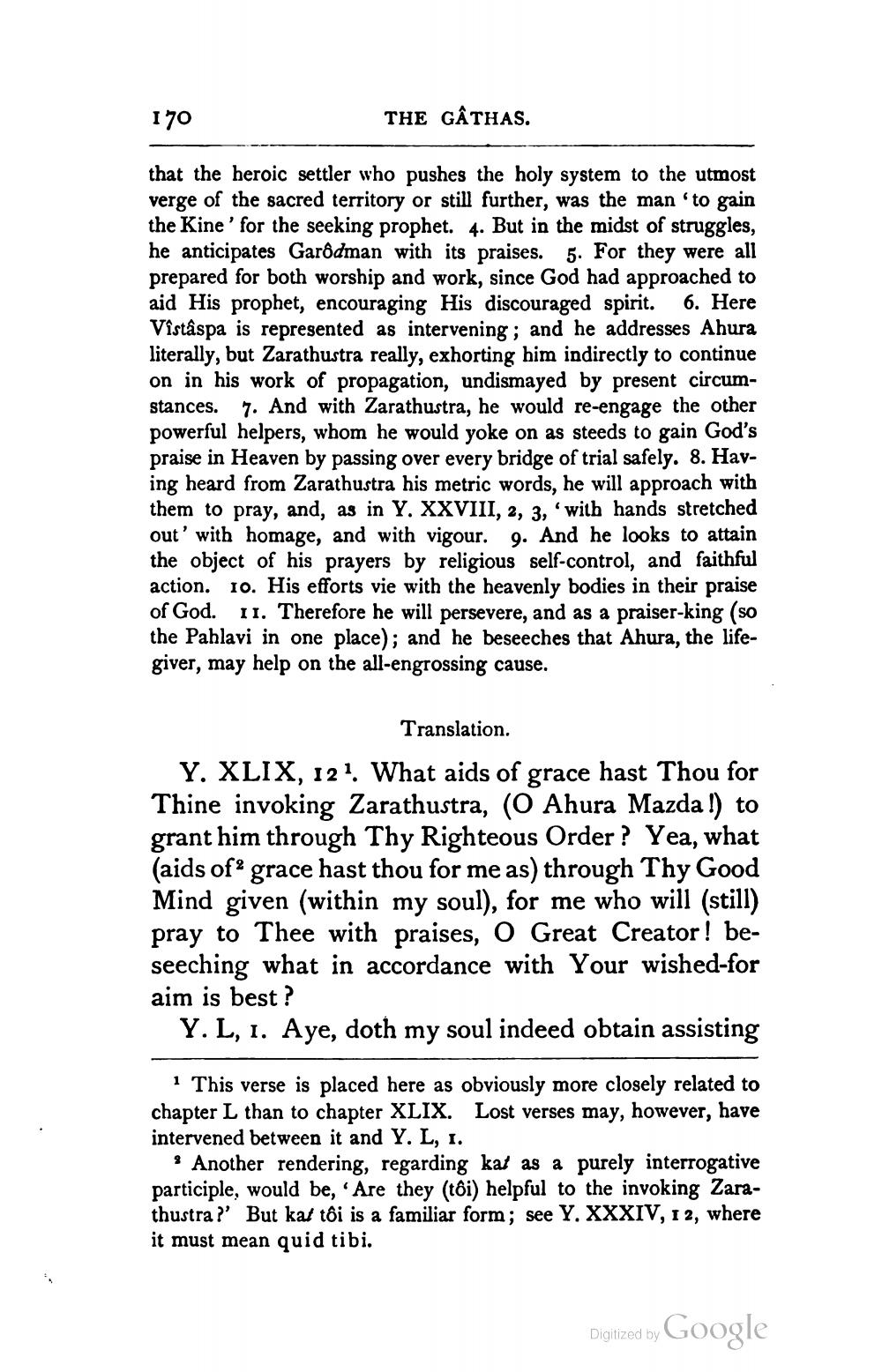________________
170
THE GÂTHAS.
that the heroic settler who pushes the holy system to the utmost verge of the sacred territory or still further, was the man 'to gain the Kine' for the seeking prophet. 4. But in the midst of struggles, he anticipates Garôdman with its praises. 5. For they were all prepared for both worship and work, since God had approached to aid His prophet, encouraging His discouraged spirit. 6. Here Vîstâspa is represented as intervening; and he addresses Ahura literally, but Zarathustra really, exhorting him indirectly to continue on in his work of propagation, undismayed by present circumstances. 7. And with Zarathustra, he would re-engage the other powerful helpers, whom he would yoke on as steeds to gain God's praise in Heaven by passing over every bridge of trial safely. 8. Having heard from Zarathustra his metric words, he will approach with them to pray, and, as in Y. XXVIII, 2, 3, with hands stretched out' with homage, and with vigour. 9. And he looks to attain the object of his prayers by religious self-control, and faithful action. 10. His efforts vie with the heavenly bodies in their praise of God. 11. Therefore he will persevere, and as a praiser-king (so the Pahlavi in one place); and he beseeches that Ahura, the lifegiver, may help on the all-engrossing cause.
Translation Y. XLIX, 121. What aids of grace hast Thou for Thine invoking Zarathustra, (O Ahura Mazda !) to grant him through Thy Righteous Order? Yea, what (aids of grace hast thou for me as) through Thy Good Mind given (within my soul), for me who will (still) pray to Thee with praises, O Great Creator! beseeching what in accordance with Your wished-for aim is best?
Y. L, 1. Aye, doth my soul indeed obtain assisting
1 This verse is placed here as obviously more closely related to chapter L than to chapter XLIX. Lost verses may, however, have intervened between it and Y. L, 1.
* Another rendering, regarding kat as a purely interrogative participle, would be, 'Are they (tôi) helpful to the invoking Zarathustra ?' But kat tôi is a familiar form; see Y. XXXIV, 1 2, where it must mean quid tibi.
Digitized by
Digitized by Google




